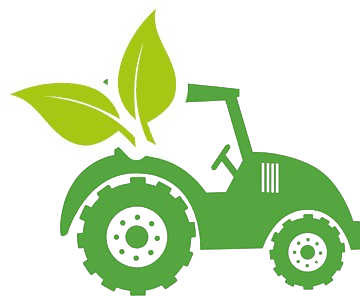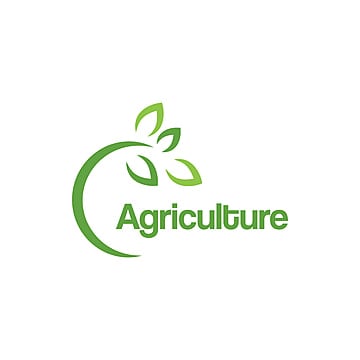What is Agriculture Course?
A course in agriculture is a specific curriculum created to give students the knowledge and abilities needed to oversee and improve agricultural processes. Numerous facets of agricultural production, soil management, plant biology, and animal husbandry are covered in this field of research. Pupils gain knowledge of contemporary farming methods, sustainable farming concepts, and the application of technology in agriculture, including irrigation systems and precision farming. Environmental science, pest control, agricultural engineering, and agro-economics are among the topics that are frequently included in the curriculum. An essential element is practical training, which includes real-world exposure in farms and labs.
Agriculture graduates are equipped for professions in farming, agribusiness, agricultural research, and rural development. They could optimize resource management and food production by working as agronomists, farm managers, or agricultural consultants. The significance of sustainable practices in addressing global issues like food security and climate change is also emphasized throughout the course. Students might also learn more about the socioeconomic effects of agriculture on communities and how policies are made. All things considered, an agriculture course offers a thorough education that encourages the creation of novel solutions for the agricultural industry.

Agriculture Course Highlights
Course Overview:
The Agriculture course provides a comprehensive understanding of modern farming practices, sustainable agriculture, and the latest technologies in the field. It covers a wide range of topics that equip students with the knowledge and skills needed to address the challenges and opportunities in agriculture today.
Key Topics Covered:
Soil Science:
- Understanding soil properties and types.
- Soil fertility and management.
- Soil conservation techniques.
Plant Biology:
- Basics of plant anatomy and physiology.
- Crop development and genetics.
- Disease management and pest control.
Agricultural Economics:
- Principles of agricultural economics.
- Market trends and trade in agriculture.
- Farm management and agribusiness strategies.
Sustainable Agriculture:
- Practices for sustainable farming.
- Organic farming methods.
- Environmental impacts and conservation.
Agricultural Technology:
- Introduction to precision agriculture.
- Use of drones, sensors, and GPS in farming.
- Innovations in crop monitoring and yield prediction.
Livestock Management:
- Basics of animal husbandry.
- Livestock nutrition and health care.
- Breeding techniques and genetic improvement.
Agroforestry and Horticulture:
- Integration of trees and shrubs into agriculture.
- Horticultural practices and crop diversity.
- Urban agriculture and vertical farming.
Irrigation and Water Management:
- Water resources and irrigation systems.
- Efficient water use and conservation techniques.
- Impact of climate change on water availability.
Practical Components:
- Field Visits: Hands-on experience through field trips to farms, research stations, and agricultural businesses.
- Laboratory Work: Experiments and analysis related to soil, plant health, and crop production.
- Project Work: Real-world projects focusing on current agricultural challenges and innovative solutions.
Career Opportunities

Numerous employment options across multiple industries are available to those with a B.Sc. in Agriculture. The following are some possible job paths and roles:
1. Agricultural Scientist
- Role: Research and develop new agricultural practices, technologies, and crop varieties.
- Employers: Research institutions, universities, government agencies, private companies.
2. Agronomist
- Role: Study and improve crop production, soil management, and sustainable farming practices.
- Employers: Agricultural research organizations, extension services, agribusiness firms.
3. Soil Scientist
- Role: Analyze soil properties and recommend soil management techniques to improve crop yields.
- Employers: Agricultural research institutes, government agencies, environmental consulting firms.
4. Farm Manager
- Role: Oversee the daily operations of a farm, including crop production, livestock management, and staff supervision.
- Employers: Private farms, agricultural enterprises, agribusinesses.
5. Agricultural Extension Officer
- Role: Provide advice and support to farmers on best practices, technology, and resources.
- Employers: Government extension services, non-governmental organizations (NGOs), agricultural development programs.
6. Horticulturist
- Role: Specialize in the cultivation of fruits, vegetables, flowers, and ornamental plants.
- Employers: Nurseries, botanical gardens, research institutes, landscaping companies.
7. Agricultural Engineer
- Role: Design and develop machinery, tools, and equipment for efficient farming practices.
- Employers: Engineering firms, agricultural machinery manufacturers, research institutions.
8. Crop Consultant
- Role: Offer expert advice to farmers on crop selection, pest management, and productivity enhancement.
- Employers: Consulting firms, agribusiness companies, independent practice.
9. Agricultural Economist
- Role: Analyze economic aspects of agriculture, including market trends, pricing, and policy impacts.
- Employers: Government agencies, research institutions, financial firms.
10. Agriculture Policy Analyst
- Role: Research and analyze agricultural policies and their impact on farmers and the agricultural sector.
- Employers: Government bodies, policy think tanks, NGOs.
11. Veterinary Technician
- Role: Support veterinarians in the care of livestock and farm animals.
- Employers: Veterinary clinics, farms, animal health companies.
12. Agri-business Manager
- Role: Manage business operations related to agriculture, including marketing, finance, and supply chain management.
- Employers: Agribusiness companies, cooperatives, farm management companies.
13. Seed Technologist
- Role: Develop and test new seed varieties and ensure seed quality and compliance with regulations.
- Employers: Seed companies, agricultural research organizations, government agencies.
14. Agricultural Sales and Marketing
- Role: Market and sell agricultural products, services, and technology to farmers and businesses.
- Employers: Agricultural input companies, seed and fertilizer companies, agri-tech firms.
15. Sustainable Agriculture Specialist
- Role: Focus on practices that promote environmental sustainability, reduce waste, and improve resource efficiency.
- Employers: NGOs, government agencies, sustainability-focused businesses.
Each of these roles may require additional specialization or certifications, and opportunities can vary based on location, experience, and education.
FAQs
1. What is an agriculture course?
- An agriculture course is a program of study focused on the science, technology, and business of farming. It covers topics like crop production, livestock management, soil science, agronomy, agricultural economics, and sustainable farming practices.
2. What qualifications do I need to enroll in an agriculture course?
- Typically, you need a high school diploma with a focus on science subjects like biology, chemistry, and sometimes mathematics. Some advanced courses may require a bachelor’s degree in a related field.
3. Is practical experience part of the agriculture course?
- Most agriculture courses include practical training through internships, fieldwork, lab work, and projects. This hands-on experience is essential for understanding real-world agricultural practices.
4. Are online agriculture courses available?
- Yes, many institutions offer online agriculture courses, especially for topics like agricultural business, sustainable farming practices, and specific technical skills.
5. What is the cost of an agriculture course?
- Costs vary depending on the country, institution, and level of study. Scholarships and financial aid may be available for eligible students.
6. Is agriculture a good career choice?
- Agriculture is a critical and evolving field with opportunities in various sectors like technology, business, environmental management, and food production. It can be a fulfilling career with the potential to contribute to global food security and sustainability.
7. What are the prospects for further studies after an agriculture course?
- After completing an agriculture course, you can pursue advanced degrees like a Master’s or Ph.D. in specialized areas or related fields such as environmental science, rural development, or agricultural economics.
8. Can I start my own farm after completing an agriculture course?
- Yes, an agriculture course provides the foundational knowledge and skills needed to start and manage your own farm or agribusiness. Many courses also offer entrepreneurship training.


